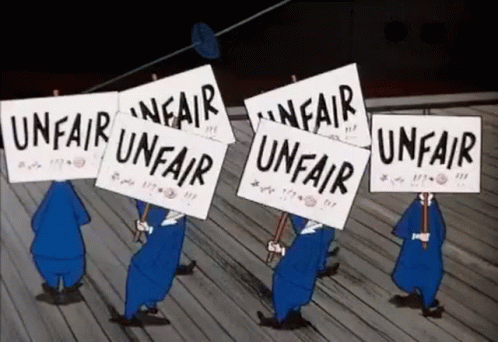How to Deal with Unfair Conflict Processes

“What is good for the goose is good for the gander.”
You might have heard the saying before.
But in workplace conflicts, it often seems like the metaphorical goose and gander aren’t standing on equal ground.
When some people raise issues, they're addressed promptly and fairly. But other times, concerns are dismissed or handled through entirely different channels.
You're struggling to understand why the same rules don't seem to apply to everyone.
Do you feel like processes for handling conflicts aren't applied consistently in your workgroup?
This inconsistency in handling workplace conflicts isn't just confusing – it's a recognised workplace issue known as lack of procedural justice.
And when conflict resolution processes aren't applied fairly and consistently, it can affect both workplace trust and team harmony.
What's Procedural Justice?
Procedural justice means having fair and consistent processes for handling workplace conflicts and concerns. This consistency is fundamental to both workplace fairness and employee trust.
When procedural justice is strong, everyone knows what to expect when conflicts arise and trusts that issues will be handled fairly.
However, when conflict processes are inconsistent, you need strategies to navigate and address these inequities effectively.

Why It Matters
Here's why inconsistent conflict processes need attention:
- It can create uncertainty about how to properly raise and resolve issues
- It often leads to decreased trust in workplace fairness and leadership
- It may discourage people from speaking up about legitimate concerns
But you don't have to accept unfair processes as normal. There are ways to advocate for more consistent conflict resolution.

1. Document Patterns
Keep records of how different conflicts are handled, noting inconsistencies in processes.
2. Know Your Policies
Familiarise yourself with official workplace conflict resolution procedures and guidelines.
3. Seek Clarity
Ask for transparent explanations about how conflict resolution processes should work.

Promoting Fair Treatment
Witnessing inconsistent handling of workplace conflicts can really shake your faith in the system. But every workplace should expect fair and equal treatment, and it's important to make sure it's happening.
When you use MOOD.ai to track how you feel each day – even about conflict resolution – you can identify patterns of inconsistency and advocate for more equitable processes.
So, whether you're a 'goose' or a 'gander', you have a right to fair and consistent conflict resolution matters.
And by promoting procedural justice, you'll be helping create a more trustworthy work environment for everyone.

